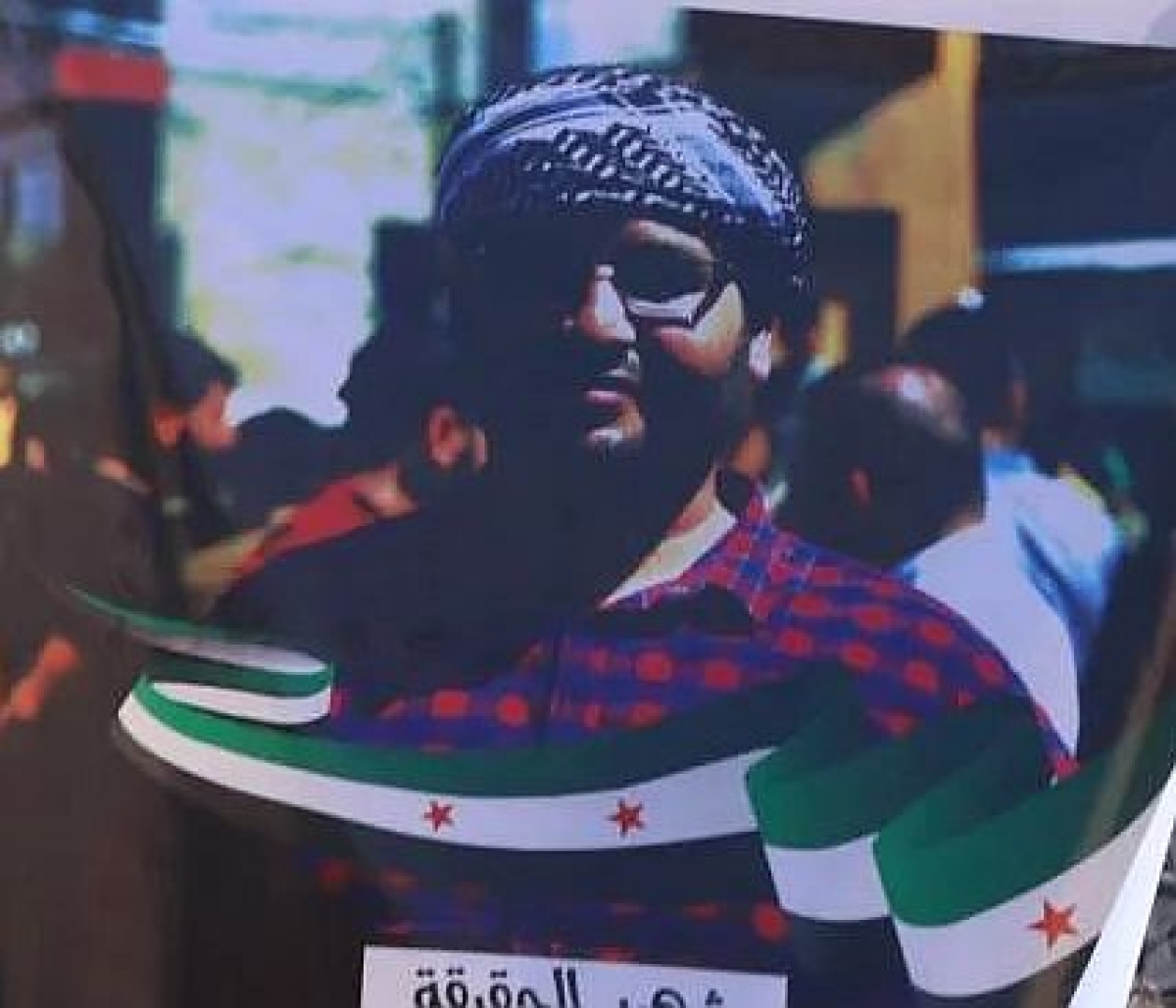Jihadisten von HTS stürmen Afrin

Muhammad Abdul Latif (Abu Ghannoun), Bildquelle: Twitter
In Norsyrien sind erneut heftige Kämpfe ausgebrochen und Milizen von Hay'at Tahrir al-Sham (HTS), ehemals Al Qaida Syrien, haben Teile der Stadt Afrin eingenommen, die bislang von der aus der Türkei unterstützten Syrian National Army kontrolliert wurde. Auslöser der neuen Kämpfe war der Mord an einem bekannten syrischen Aktivisten.
One civilian has been killed and several more wounded in the fighting, which was triggered by the assassination of a prominent Syrian activist last week. At least a dozen rebels have also been killed, activists said.
HTS, the former al-Qaeda branch that controls most of Idlib province to Afrin's west, on Thursday pushed heavily armed convoys into Afrin and the surrounding countryside, and is reportedly now heading towards Azaz.
The militant group, by far the strongest remaining rebel faction, has allied with former foes including the Hamzah Division, Sultan Suleiman Shah Division, Ahrar al-Sham and the remnants of the Nour al-Din al-Zenki Movement, all rebel factions that belong to the Turkish-backed Syrian National Army (SNA) grouping.
Together they launched an offensive against the SNA's Third Legion, which includes prominent rebel groups such as the Levant Front and Jaysh al-Islam.
Seit langem gibt es heftige Kritik an der SNA und von der Türkei finanzierten Polizeitruppen in Afrin, die als korrupt und brutal gelten. Der getötete Aktivist,Muhammad Abdul Latif, bekannt als Abo Ghanoum, galt als scharfer und furchtloser Kritiker dieser Gruppen und mit entsprechender Wut reagierten viele auf sein Ende. Für die Türkei, die gerade eine massive Rückführung syrischer Flüchtlinge plant, kommt die Entwicklung deshalb äußerst ungelegen:
The death of Abo Ghanoum has exacerbated local criticism of the SNA and its backers, Turkey.
The source, who spoke to MEE on condition of anonymity out of safety concerns, said violations by members of the SNA and its military police are driven by poor recruitment by Turkey and low compensation.
"The problem is that Turkey funded corrupt fighters, then reduced their monthly salaries to less than $50," the source said.
"These mercenaries turned to the drug trade, theft, violating the rights of civilians to seek money and threatening activists who expose their corruption."
Turkey has launched three major operations in northern Syria to establish safe zones along its border.
Turkish-backed rebel groups control pockets in the region, including al-Bab, a stronghold of activists displaced from prominent opposition towns such as Aleppo, Daraa and Maarat al-Numan - which are now controlled by government forces.
An increasing sense of insecurity in Turkish-held areas is not viewed as beneficial to Ankara, a European Union official, who didn't want to be named, argued.
"It is in [President] Erdogan's interest to make northern Syria a safe area to send Syrian [refugees] back and encourage their return, given that reducing the number of Syrians in Turkey will increase his popularity before the upcoming Turkish elections. Therefore, the insecurity and Turkey's inability to control the situation is strange," he told MEE